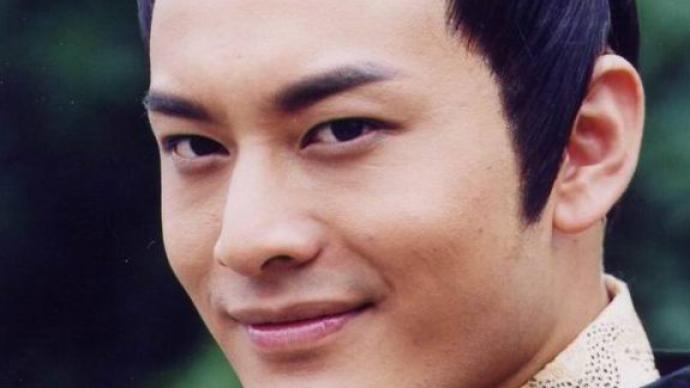
Editor's note: This is a nostalgic theater.
When it comes to "The Son of Heaven", the first thing people think of is undoubtedly the very young Huang Xiaoming. Who would have imagined 20 years ago that this handsome and domineering young man on the TV screen would become a middle-aged, greasy and domineering president who "don't think about it, just think about it" in the future?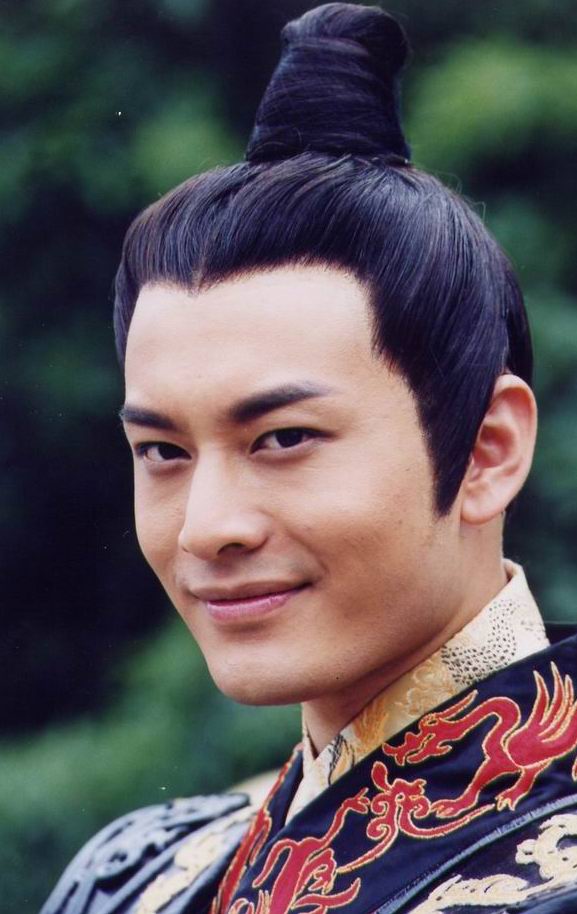
The historical authenticity of "The Son of Heaven" has always been a weakness that has been violently complained by netizens. But perhaps, the direction of everyone's criticism was wrong at the beginning. Rather than saying that this play is about Liu Che, the emperor of Han Wu in history, it is better to say that it is a youth version of "joking about Han Wu". Take Huang Xiaoming's performance as an example. The whole drama, especially Liu Che in the first half, is more like a silly boy who is passionate and heartless at every turn, and has nothing to do with the well-known Emperor Wu of the Han Dynasty. .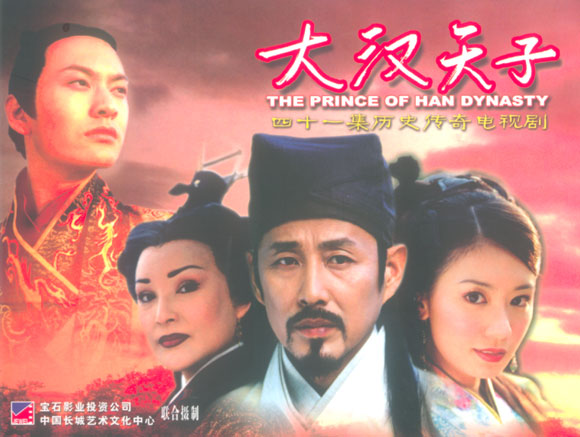
Therefore, if someone watches this play with an attitude of historical research, it is obviously on the wrong set. This is a large-scale youth entertainment idol drama, nothing more, no need to look at it because of our childhood filters.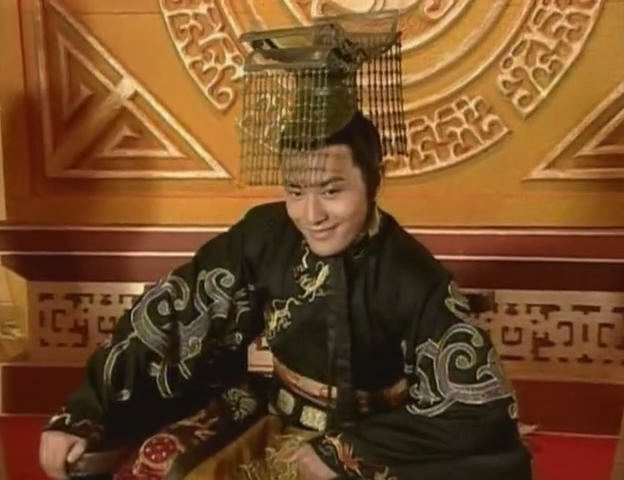
After entering the new century, the Chinese film market has undergone changes quietly. It is difficult for pure art films to achieve profitability. This has led to a large number of film directors entering the field of TV dramas. Hu Mei, the director of "Han Wu the Great", is one of them. At the same time, we can also see Li Shaohong's "Daming Palace Ci", Wu Ziniu's "The Granary of the World", Yang Yazhou's "Empty Mirror", Chen Kaige's "Lu Bu and Diaochan" and so on.
Therefore, in terms of word of mouth and ratings, "The Emperor of the Han Dynasty" is not inferior to the performance of "The Great Emperor of the Han Dynasty", and it has also become a watershed in the development of Chinese TV dramas: art gradually gives way to commerce, and entertainment functions gradually replace educational functions. It is also a normal trend for Chinese TV dramas to continue to enter the market.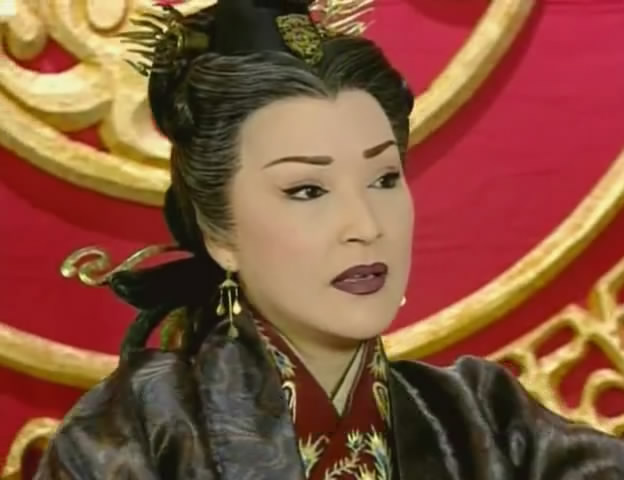
For example, after Princess Pingyang in the play was widowed, she was forced to marry by Empress Dowager Dou. On the night she wanted to commit suicide, she was rescued by Nian Nujiao. At that time, Wei Zifu, who was still a maid, set out on the road. Liu Che hurried to intercept the news when he heard the news, "Wei Zifu won't marry the Huns either!"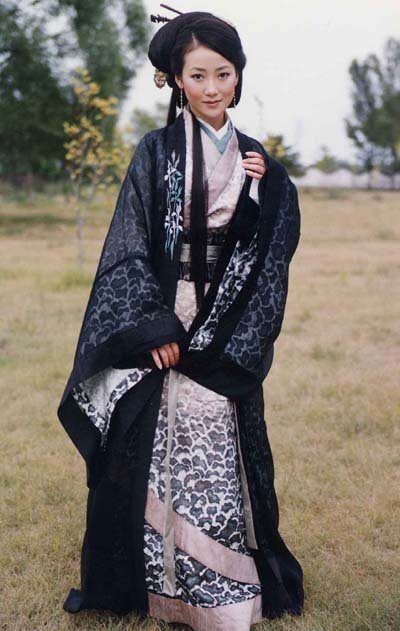
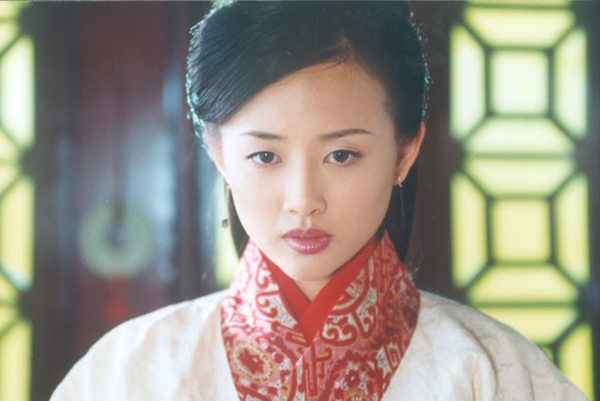
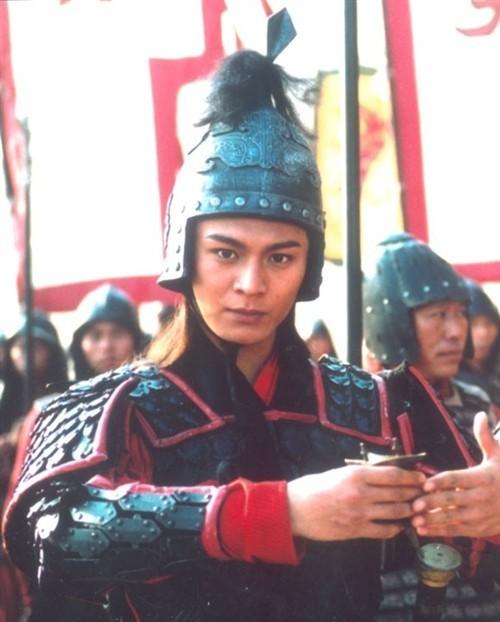
It can be seen that it is not important whether TV dramas are commercialized or not, but what kind of three views are conveyed. This year's "Mountains, Rivers and Moonlight" tried its best to highlight the "human touch" of the emperor's family, and made Zhu Yuanzhang's royal family an "old Zhu family" like ordinary people. This is not only a blunt plot setting, but also a major misunderstanding of history. On the other hand, "Meng Hualu", which has been popular recently, is both a joke and a magic reform. However, because it points out themes such as gender equality and female independence (although it has not been implemented to the end), it has won the support and opinion of the audience. awesome. In this regard, today's commercial TV series should really learn from "The Son of Heaven".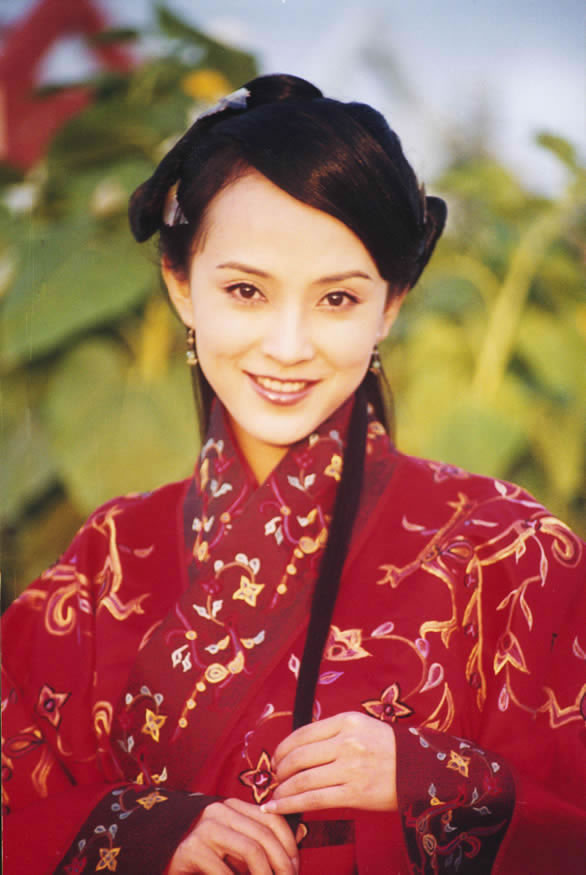
She was so undisguised, so blatantly bad, that near the end, she was already a prisoner, still her face remained unchanged, and she was laughing. Such magnanimity makes the male villains such as Zhang Tang, who is wandering in the gray space, look overshadowed. Such unforgettable female villains are almost extinct today. It seems that today's screenwriters don't even know how to write a bad guy.
The second is Nian Nujiao, this empathetic and charming girl, the most admirable thing about her is not her beauty and wisdom, but her uninhibited soul that loves freedom. The emperor Liu Che fell in love with her at first sight and was infatuated with her, but she was unmoved at all, and it was only Dongfang Shuo who pretended to be the only one in her heart.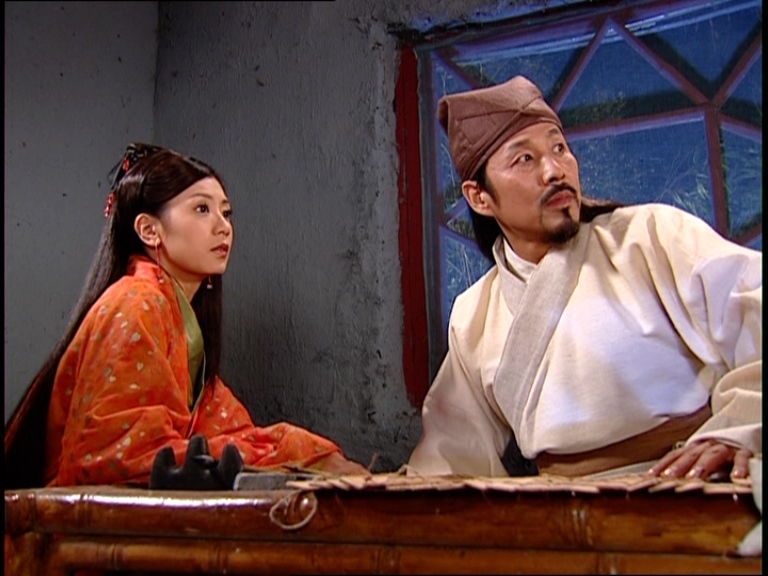
I especially like the ending of "The Great Man of Heaven". Seeing Liu Che's madness on the emperor's throne, Dongfang Shuo decided to join hands with Nian Nujiao to return to the mountains. Nian Nujiao asked, "Where are we going now?" Dongfang Shuo pointed to her heart and his own, and said, "I'll go to you, you come to me." This is the most touching love story in the world.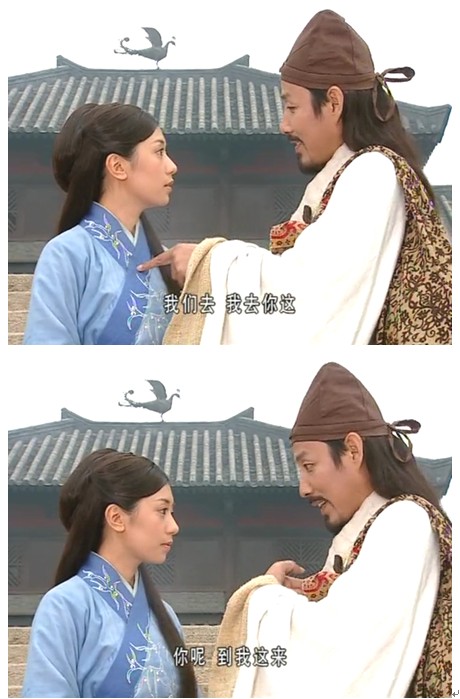
When it comes to "The Son of Heaven", the first thing people think of is undoubtedly the very young Huang Xiaoming. Who would have imagined 20 years ago that this handsome and domineering young man on the TV screen would become a middle-aged, greasy and domineering president who "don't think about it, just think about it" in the future?

Stills of "The Son of Heaven", Emperor Wu of the Han Dynasty Liu Che (played by Huang Xiaoming)
In fact, more than Huang Xiaoming has changed. Looking back and watching "The Son of Heaven", you will find that the TV series of that year were also so simple and pure, perhaps still far from the classics, but fortunately, they are not as "smart" and calculated as today's hit dramas.The historical authenticity of "The Son of Heaven" has always been a weakness that has been violently complained by netizens. But perhaps, the direction of everyone's criticism was wrong at the beginning. Rather than saying that this play is about Liu Che, the emperor of Han Wu in history, it is better to say that it is a youth version of "joking about Han Wu". Take Huang Xiaoming's performance as an example. The whole drama, especially Liu Che in the first half, is more like a silly boy who is passionate and heartless at every turn, and has nothing to do with the well-known Emperor Wu of the Han Dynasty. .

"The Son of Heaven" poster
The lines of this play are also not flattering. Modern words such as "mother", "boyfriend" and "girlfriend" are mixed in, which makes the audience very playful. The time line is also very confusing. Someone just said to Liu Che, "His Majesty has been on the throne for more than a year", and then Nian Nujiao said to Dongfang Shuo, "This is the first anniversary of our acquaintance". As for the age of Huo Qubing and Dongfang Shuo, it is completely complete. A confused account.Therefore, if someone watches this play with an attitude of historical research, it is obviously on the wrong set. This is a large-scale youth entertainment idol drama, nothing more, no need to look at it because of our childhood filters.

Stills of "The Son of Heaven"
Having said that, the role of this drama in the history of Chinese TV drama should not be underestimated. It is about the same historical figure and the same historical era, and there is another very successful TV series "Han Wu the Great" in the same period. Unlike "The Emperor of the Han", which gathers a large number of youth idols and popular stars, and entertains the interpretation of history, "The Emperor of Han Wu" not only follows the path of a serious drama, but also faintly shows the shadow of elitism.After entering the new century, the Chinese film market has undergone changes quietly. It is difficult for pure art films to achieve profitability. This has led to a large number of film directors entering the field of TV dramas. Hu Mei, the director of "Han Wu the Great", is one of them. At the same time, we can also see Li Shaohong's "Daming Palace Ci", Wu Ziniu's "The Granary of the World", Yang Yazhou's "Empty Mirror", Chen Kaige's "Lu Bu and Diaochan" and so on.
Therefore, in terms of word of mouth and ratings, "The Emperor of the Han Dynasty" is not inferior to the performance of "The Great Emperor of the Han Dynasty", and it has also become a watershed in the development of Chinese TV dramas: art gradually gives way to commerce, and entertainment functions gradually replace educational functions. It is also a normal trend for Chinese TV dramas to continue to enter the market.

Dowager Dowager (Sally Chen)
But it must be clarified that elegance or commonality is only the narrative method and expression style of the TV series, not the decisive factor for the quality of the work. "The Son of Heaven" is not false in business, and it has indeed changed a lot of historical details, but it does not lack positive and correct values.For example, after Princess Pingyang in the play was widowed, she was forced to marry by Empress Dowager Dou. On the night she wanted to commit suicide, she was rescued by Nian Nujiao. At that time, Wei Zifu, who was still a maid, set out on the road. Liu Che hurried to intercept the news when he heard the news, "Wei Zifu won't marry the Huns either!"

Princess Pingyang (played by Chen Zihan)
In terms of status, Wei Zifu is just a slave; in terms of interpersonal relationships, Wei Zifu is not as good as his sister, Princess Pingyang; in terms of personal will, Wei Zifu is also willing to sacrifice himself to avoid war. Despite this, Liu Che did not think that Wei Zifu was a trivial person, and he had to resolutely save her fate. Liu Che announced that he would no longer have a relationship, which surprised the messenger and made us feel the preciousness of this play-respecting the dignity of each character and each specific "person" is more important than anything else.
Wei Zifu (Wang Ling)
For another example, in the early stage, Liu Che was carefree and very loyal, and he was a bit like a "silly white sweet" when he hung out with his good brothers Guanfu, Guo Sheren, Li Ling, Zhang Tang, etc. Unfortunately, after the second half of the TV series, those precious brotherhoods quickly fell apart. Zhang Tang was jealous of the virtuous, and an accident was inevitable; Guan was cowardly and timid, and hurt his friends; Li Ling suffered grievances, but fortunately, he found love in the end.
Li Ling (played by Liu Guanxiang)
The death and dispersal of these good brothers seems to be accidental, but in fact it is inevitable. In the end, they still did not recognize the relationship between themselves and Liu Che. In the face of power, there are only monarchs and ministers, how come brothers? At the end of the TV series, Chen Ajiao was abolished, Nian Nujiao and Dongfang Shuoyuan flew high, Liu Che was indeed above ten thousand people, and he was indeed the most lonely and lonely one. Later, the second and third volumes of "The Son of Heaven" did not give up the criticism and exposure of imperial power. Don't look at "The Son of Heaven" is just a commercial drama to entertain the public, but its understanding of the nature of power is very sober.It can be seen that it is not important whether TV dramas are commercialized or not, but what kind of three views are conveyed. This year's "Mountains, Rivers and Moonlight" tried its best to highlight the "human touch" of the emperor's family, and made Zhu Yuanzhang's royal family an "old Zhu family" like ordinary people. This is not only a blunt plot setting, but also a major misunderstanding of history. On the other hand, "Meng Hualu", which has been popular recently, is both a joke and a magic reform. However, because it points out themes such as gender equality and female independence (although it has not been implemented to the end), it has won the support and opinion of the audience. awesome. In this regard, today's commercial TV series should really learn from "The Son of Heaven".

Liu Ling (played by Shang Rong)
Take the character design as an example, many of the female characters in this play are more three-dimensional and richer than the clever Zhao Paner. The most impressive one is Liu Ling. Although she is a veritable female villain in the play, she is extremely charming. Beauty and scheming are her best weapons, and she will do whatever she can to achieve her goals. However, that frown, smile, and waves will make the audience feel that she can never be attached to any man, or that she doesn't look down on her at all. on any man.She was so undisguised, so blatantly bad, that near the end, she was already a prisoner, still her face remained unchanged, and she was laughing. Such magnanimity makes the male villains such as Zhang Tang, who is wandering in the gray space, look overshadowed. Such unforgettable female villains are almost extinct today. It seems that today's screenwriters don't even know how to write a bad guy.
The second is Nian Nujiao, this empathetic and charming girl, the most admirable thing about her is not her beauty and wisdom, but her uninhibited soul that loves freedom. The emperor Liu Che fell in love with her at first sight and was infatuated with her, but she was unmoved at all, and it was only Dongfang Shuo who pretended to be the only one in her heart.

Nian Nujiao (played by Alyssa Chia) and Dongfang Shuo (played by Chen Daoming)
Dongfang Shuo did not dare to accept Nian Nujiao's love, because he had his own ambitions, and he understood the principle of accompanying a king like a tiger. What he was most afraid of was not being able to give Nian Nujiao happiness. Nian Nujiao hid in the music shop and specially danced a song "Oriental You Jiamu" for him. He asked, shouldn't there be Jiamu in the south? In fact, how could he not understand, why did Nian Nujiao change to "Oriental"? Such a good girl who never bows to power and pursues true love wholeheartedly, how could Dongfang Shuo be willing to miss it?I especially like the ending of "The Great Man of Heaven". Seeing Liu Che's madness on the emperor's throne, Dongfang Shuo decided to join hands with Nian Nujiao to return to the mountains. Nian Nujiao asked, "Where are we going now?" Dongfang Shuo pointed to her heart and his own, and said, "I'll go to you, you come to me." This is the most touching love story in the world.

"Classic Love Story" in "The Son of Heaven"
The most important thing is that, over the years, I have seen so many so-called "big heroines" stepping onto the pinnacle of power step by step and starting a so-called "career", but I miss Dongfang Shuo and Nian Nujiao more and more for their freedom and wisdom. Thinking about it carefully, the TV series at that time did not have excessive skin grinding, soft light, and no exaggerated special effects and filters. It was not like the young Huang Xiaoming, who did not understand what greasy was, and did not blindly cater to fans and traffic. need. This sincerity may be the most valuable part of "The Son of Heaven".Related Posts